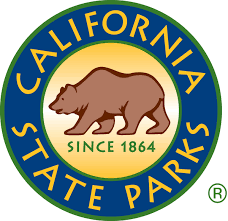Arnold, CA…California State Parks and CALFIRE will continue to conduct prescribed burns in Calaveras Big Trees State Park on October 25, 2022. This is the second of a series of prescription burns planned for the park this fall.

This particular project will cover approximately 72 acres along Highway 4. Ignition is dependent on weather conditions and resources. The units have been prepared for prescription burns. Active firing is expected to last three to four days; however, smoke will remain in the area for some time after active firing has stopped. Visitors and residents should expect one-lane traffic control along Highway 4 during daytime hours. Motorists should exercise caution driving along Highway 4 during nighttime hours from the park boundary through Arnold due to potential heavy smoke and reduced visibility.
Prescribed fire is an important, proactive resource to protect giant sequoias, and the park, from the catastrophic destruction of wildfires. As evidenced in the southern Sierra groves, dry conditions, heavy fuel loads, and high-intensity wildfires have led to the loss of giant sequoias at a rate not previously seen. Prescribed burns reduce the fuel load, can help slow or stop wildfires in treated areas, and mimic a more natural, low-intensity fire which is necessary for new sequoia growth.
Forest thinning and prescribed fire restore and maintain an ecologically healthy forest system. Additional benefits from the department’s prescribed fire program include vegetation management, wildlife habitat improvement, and enhancement of the health of the forest by removing diseased materials, restoring essential nutrients to the soil, and allowing sunlight to reach the forest floor.
In partnership with Save the Redwoods League, this year’s prescribed burns are funded through a grant from CAL FIRE’s California Climate Investments Program. The Giant Sequoia Forest Resilience Project is part of California Climate Investments, a statewide program that puts billions of Cap-and-Trade dollars to work reducing GHG emissions, strengthening the economy, and improving public health and the environment– particularly in disadvantaged communities. The Cap-and-Trade program also creates a financial incentive for industries to invest in clean technologies and develop innovative ways to reduce pollution. California Climate Investments projects include affordable housing, renewable energy, public transportation, zero-emission vehicles, environmental restoration, more sustainable agriculture, recycling, and much more. At least 35% of these investments are located within and benefiting residents of disadvantaged communities, low-income communities, and low-income households across California. For more information, visit the California Climate
Investments website at CaClimateInvestments.ca.gov.
Although prescribed burns produce significantly less smoke than wildfires, communities near Calaveras Big Trees State Park, including Arnold, Dorrington, Big Trees Village, White Pines, Blue Lake Springs, and Love Creek may experience smoke from the burning operations. Prescribed burns produce significantly less smoke than wildfires. The department plans and coordinates these burns with the Calaveras and Tuolumne County Air Districts to minimize the smoke in surrounding communities. All burning depends on weather and air quality conditions that are favorable for smoke dispersal. If the conditions, such as weather or vegetation are not conducive for burning, the department will reschedule the burn.
California State Parks and CAL FIRE follow the safety protocols set by public health officials and make accommodations to limit exposure among first responders and field crews to protect staff from COVID-19 during prescribed burns.
For questions or comments about the project or about the prescribed burn program, contact Amber Sprock, Public Information Officer, at (209) 795-7980.
###
Calaveras Big Trees State Park preserves two groves of giant sequoias – the world’s largest trees – in the North and South Groves. Established in 1931, the park offers a mixed-conifer forest (a variety of trees living together), as well as access to the Stanislaus River, Beaver Creek, ancient volcanic formations, and natural meadows. Trails throughout the park allow you to discover the natural beauty that has awed visitors to the area since 1852.


